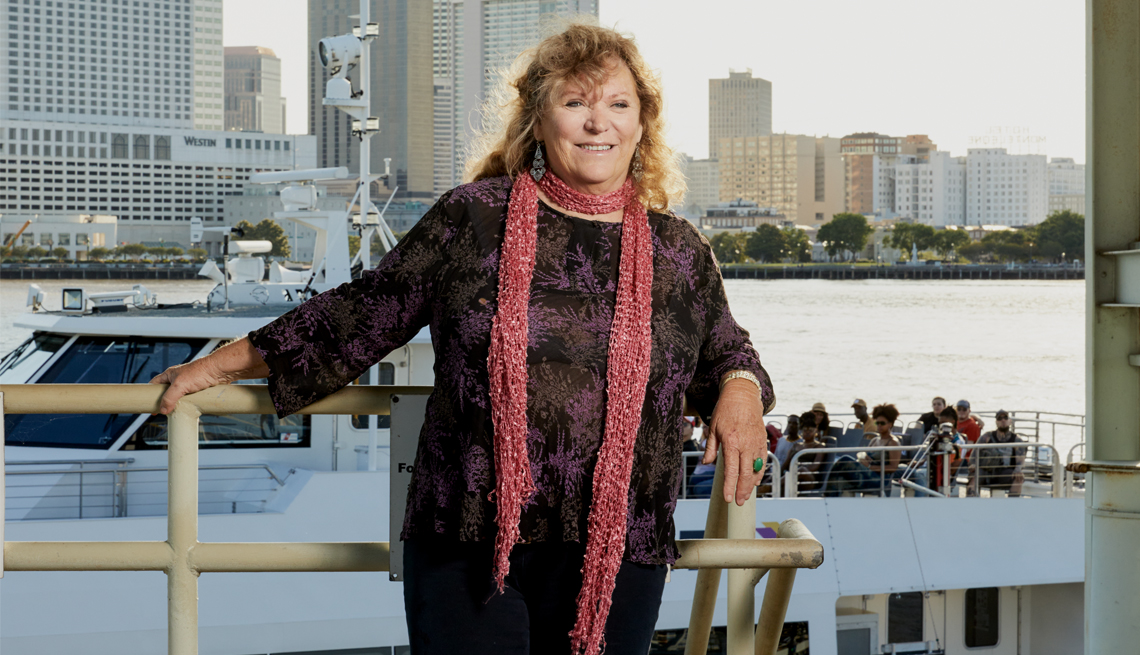
How one woman became the ferry godmother of new orleans
- Select a language for the TTS:
- UK English Female
- UK English Male
- US English Female
- US English Male
- Australian Female
- Australian Male
- Language selected: (auto detect) - EN
Play all audios:

When the free ferry that connected Fay Faron’s Algiers Point community to New Orleans’ French Quarter found itself on the chopping block, the former private investigator used her skills to
research the history of the service and to organize protests against its demise. In her work to keep the ferry going, especially for the hospitality workers who use it to commute to their
jobs, Faron, 73, often dressed as the “Ferry Godmother” to call attention to the cause. Here’s how Faron’s role evolved. FAY FARON: In 2001, I sold my detective agency in San Francisco and
moved to Algiers Point, a quiet New Orleans neighborhood that was a short, free ferry ride from the French Quarter. A lot of my new neighbors depended on the ferry to get to work. After
Hurricane Katrina, the state transportation department announced that it would be cutting the ferry’s hours — stopping service at 10 p.m. That would have left a lot of restaurant workers
unable to get to their shifts, since the hospitality business runs 24/7. So I decided to rally some neighbors to protest the cuts, and we got the state to back down. That’s how our
nonprofit, Friends of the Ferry, got started. Fast-forward to 2013, and the ferry system itself was on the chopping block due to budget cuts. I just knew it had to be saved. The service had
been started in 1827, so it wasn’t just a practical way to cross the river. It was our history and our heritage. I started using my detective skills to get access to public records so we
could arm ourselves with information. A reporter friend advised me to turn our protests into spectacles. When the news media comes out, she said, public officials come out too. So we
protested in crazy costumes. Sometimes I’d wear a midnight-blue dress and a tiara: the Ferry Godmother. We’d talk to people about what losing the ferry would mean, how it would increase
traffic on the bridges. The ferry came within two weeks of being completely defunded, which was scary, but in the end, a solution was found: The state turned operations over to the city,
which started charging a modest fee of $2 per ride, or $1 for students and seniors. Being the Ferry Godmother is an ongoing volunteer job for me. I organize an annual fundraiser for the
ferry, and I cook dinner for the crew every year on Christmas Day. I also field dozens of calls a week from people with questions about ferry service. And I’m working to expand high-speed
ferry service. We could be so much more connected. People often run into roadblocks and think, _That’s it. It’s over._ But I’ve learned that as long as you keep trying, you’re still in the
middle of a process. If you want to win, just keep going.
